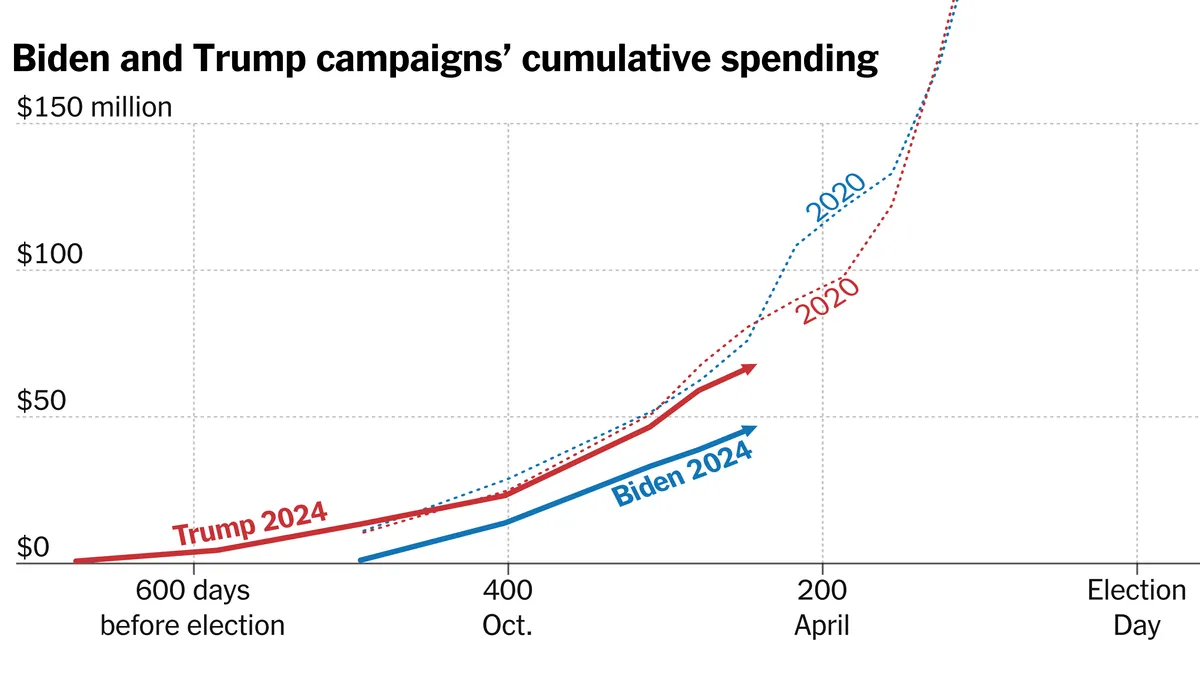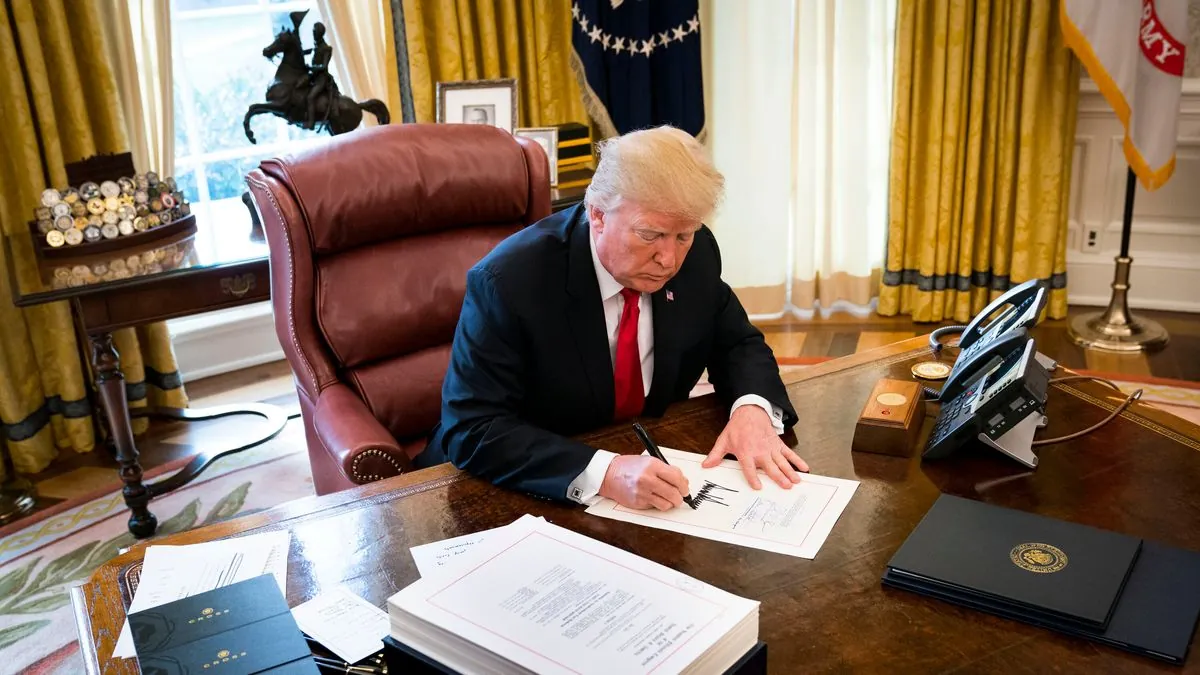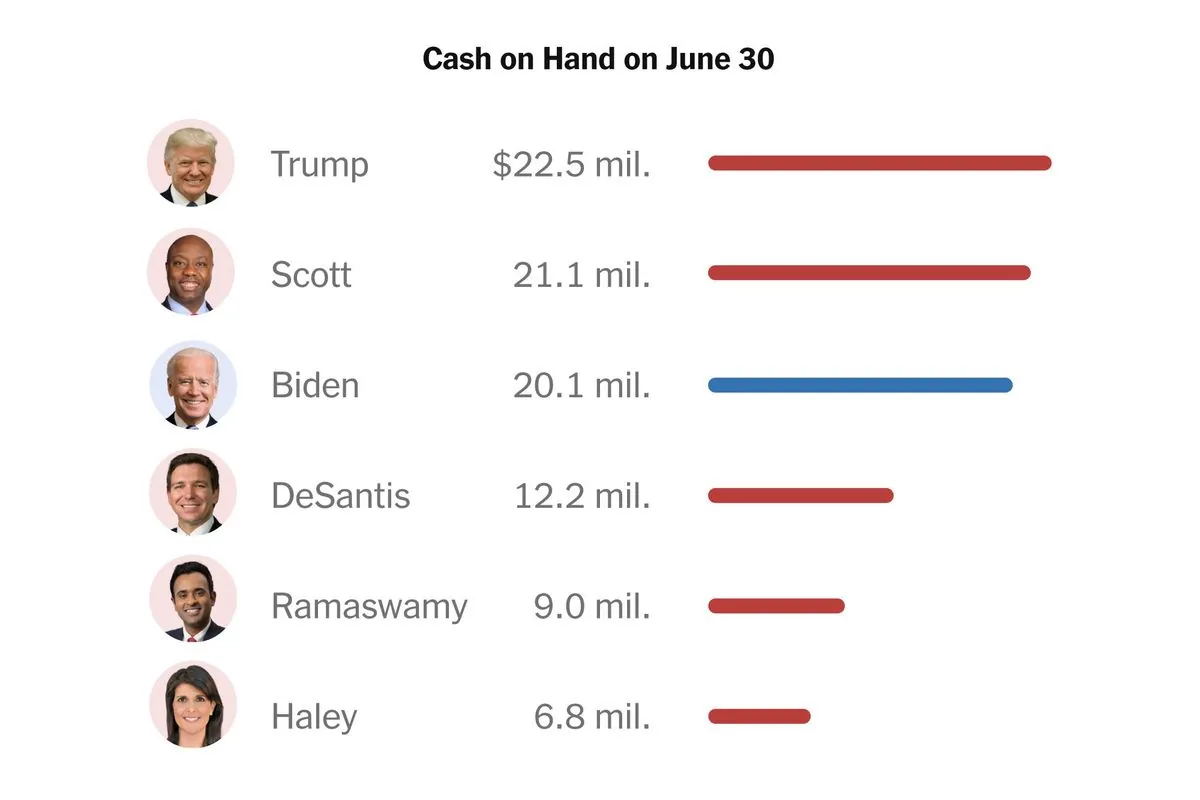Wealth Disparity Among 2024 US Presidential Candidates Revealed
Analysis of financial disclosures exposes stark contrasts in wealth among 2024 US presidential and vice-presidential candidates, ranging from billionaire status to modest savings.

The 2024 US presidential race showcases a remarkable wealth disparity among its candidates, reflecting a longstanding trend of affluent individuals in high office. This analysis delves into the financial profiles of the four main contenders, revealing striking contrasts in their economic standings.
Donald Trump, the Republican presidential nominee, stands out as the wealthiest candidate with an estimated net worth of $3.9 billion. His vast fortune stems primarily from real estate ventures and his stake in Truth Social's parent company. In 2023, Trump reported a staggering $635 million in income from his various properties and businesses. Despite his immense wealth, Trump's tax history has been controversial, with reports showing minimal tax payments in some years due to reported business losses.

On the Democratic side, Vice President Kamala Harris presents a more modest yet still considerable financial profile. Her wealth significantly increased after marrying Douglas Emhoff, a successful lawyer. The couple's combined income, including Harris's vice presidential salary of $284,600 in 2024, places them well above the median US household income. Harris has demonstrated transparency by regularly publishing her tax returns, revealing substantial charitable contributions.
The vice-presidential candidates present an even starker contrast. Republican JD Vance, at 40 years old, has amassed a fortune ranging from $4 million to $12 million, primarily through his successful memoir and venture capital career. His rapid ascent from poverty to wealth is a notable aspect of his personal narrative.
In sharp contrast, Democratic vice-presidential candidate Tim Walz stands out for his relatively modest financial status. With a net worth of about $1 million, Walz's financial situation is more reflective of the average American. Interestingly, like approximately 35% of Americans, Walz and his family do not currently own a home, having sold their house when moving into the Minnesota governor's mansion.
The candidates' financial backgrounds offer insights into their potential approaches to economic policies and their understanding of various socioeconomic challenges faced by Americans. From Trump's billionaire status to Walz's more modest means, the range of financial experiences among these candidates is unprecedented in recent US political history.
"That's different from what we've seen for a while."
This diversity in financial backgrounds may influence public perception and voter preferences in the upcoming election. As the campaign progresses, these economic disparities are likely to become a focal point in discussions about wealth inequality, tax policies, and the representation of various economic classes in the highest offices of the nation.

The financial disclosures of these candidates not only reveal their personal wealth but also shed light on their values and priorities. From Trump's complex business empire to Walz's focus on public service and education, each candidate's financial choices reflect their life experiences and potential governing philosophies.
As the election approaches, voters will have the opportunity to consider how these diverse financial backgrounds might influence the candidates' understanding of and approach to the economic challenges facing the nation. The stark contrasts in wealth among the candidates underscore the ongoing debate about economic inequality and representation in American politics.


































